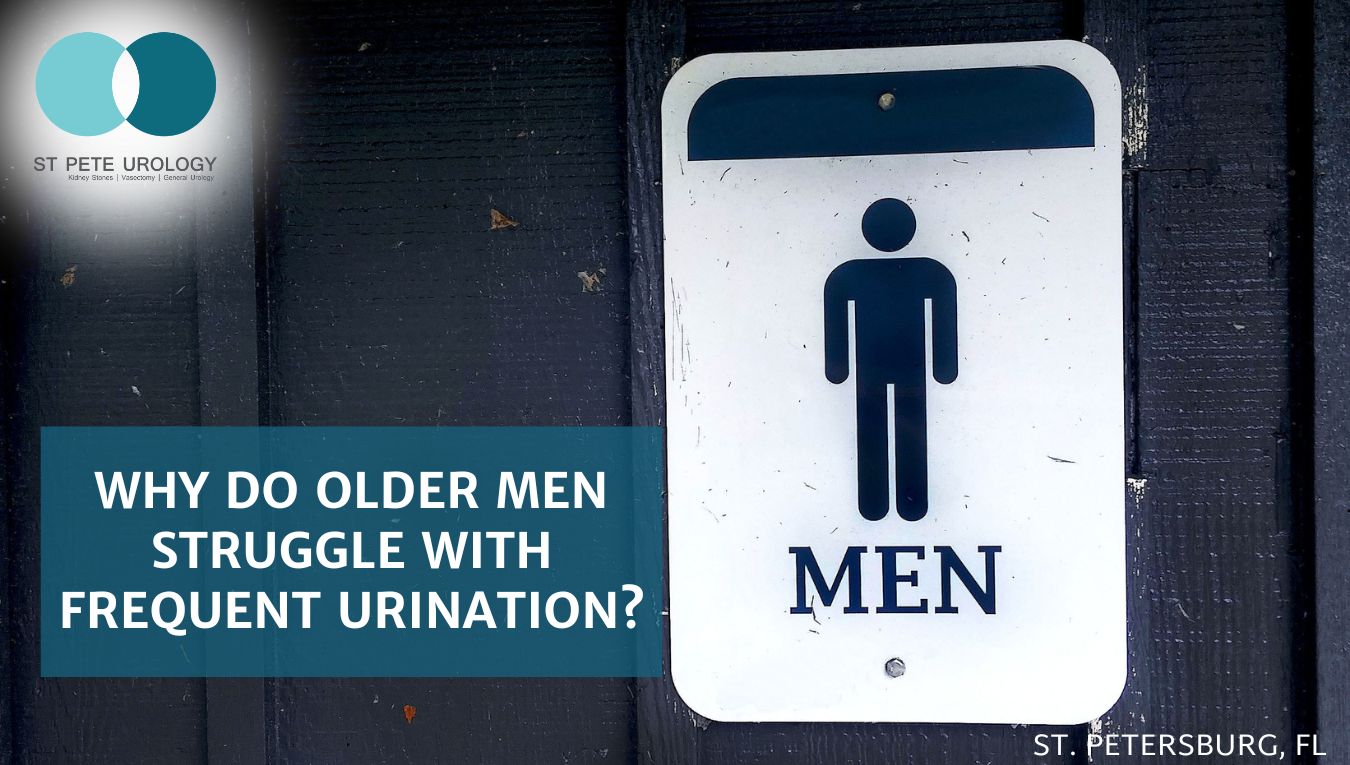3 Key Takeaways:
- Frequent urination in older men is often due to conditions like BPH and OAB.
- The issue can significantly impact sleep, emotional health, and daily activities.
- Early medical consultation is vital for effective management and improved quality of life.

Frequent urination in older men is a common concern that can significantly impact daily life and well-being. As men age, changes in urinary habits may arise, often leading to disrupted sleep, decreased productivity, and reduced quality of life. Understanding the underlying causes of this condition is crucial for effective management and treatment. This article explores the common reasons behind frequent urination in older men, its effects on daily living, and the importance of seeking medical advice for proper diagnosis and care.
Common Causes of Frequent Urination in Older Men
Several factors contribute to increased urinary frequency in aging men:
- Benign Prostatic Hyperplasia (BPH): An enlarged prostate can press against the urethra, obstructing urine flow and causing the bladder to contract more frequently.
- Overactive Bladder (OAB): This condition involves sudden urges to urinate, often leading to involuntary leakage. OAB can result from nerve signals misfiring between the bladder and brain.
- Nocturia and Nocturnal Polyuria: Nocturia refers to waking up multiple times at night to urinate, while nocturnal polyuria involves excessive urine production during nighttime hours. Both conditions disrupt sleep and are common in older adults.
- Medical Conditions: Diseases like diabetes can increase urine production, and urinary tract infections (UTIs) can cause urgency and frequency.
The Impact of Frequent Urination on Quality of Life
Persistent urinary issues can lead to:
- Sleep Disturbances: Frequent nighttime urination interrupts sleep patterns, leading to fatigue and decreased daytime alertness.
- Emotional Effects: The stress and embarrassment associated with urinary problems can contribute to anxiety and depression.
- Lifestyle Limitations: Concerns about bathroom availability may restrict social activities and travel plans.
When to Seek Medical Attention
It’s essential to consult a healthcare provider if you experience:
- Sudden changes in urinary habits
- Pain or burning during urination
- Blood in the urine
- Inability to control urination
Early diagnosis can lead to more effective treatment and prevent complications.
Treatment Options and Management Strategies
Managing frequent urination involves:
- Lifestyle Modifications: Reducing caffeine and alcohol intake, practicing bladder training, and performing pelvic floor exercises can alleviate symptoms.
- Medications: Alpha-blockers and antimuscarinics may be prescribed to relax bladder muscles and reduce urgency.
- Surgical Interventions: In severe cases, procedures like transurethral resection of the prostate (TURP) can relieve obstruction caused by BPH.
Frequent urination in older men is a prevalent issue that can significantly affect quality of life. Understanding its causes and seeking timely medical advice are crucial steps toward effective management. If you’re experiencing urinary concerns, consult with a healthcare provider to explore appropriate treatment options and improve your daily well-being.
References:
Mayo Clinic. (n.d.). Frequent urination: Causes. Retrieved from https://www.mayoclinic.org/symptoms/frequent-urination/basics/causes/sym-20050712
Cleveland Clinic. (n.d.). Frequent urination: Causes, what it means & how to stop. Retrieved from https://my.clevelandclinic.org/health/symptoms/15533-frequent-urination
National Institute on Aging. (n.d.). Urinary incontinence in older adults. Retrieved from https://www.nia.nih.gov/health/bladder-health-and-incontinence/urinary-incontinence-older-adults
St Pete Urology. (n.d.). Early signs of an enlarged prostate. Retrieved from https://stpeteurology.com/early-signs-enlarged-prostate/





